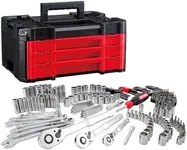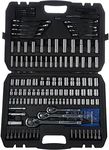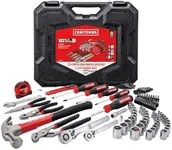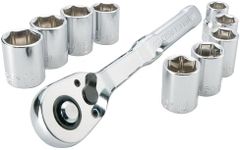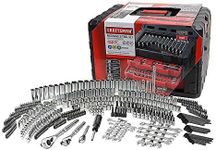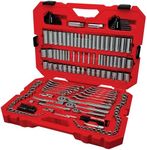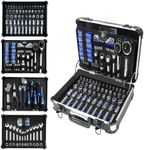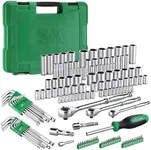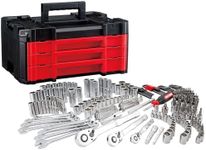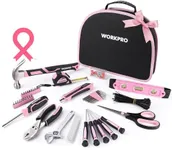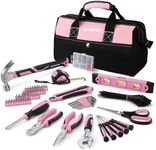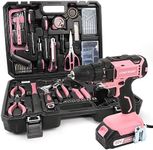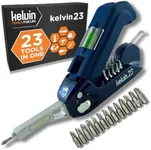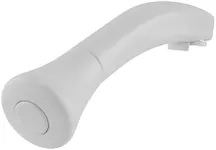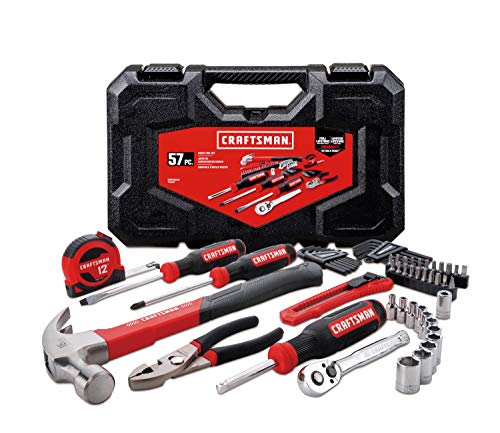Buying Guide for the Best Mechanic Tool Sets
Choosing the right mechanic tool set can be a daunting task, especially with the wide variety of options available. The key to making the right choice is understanding your specific needs and how different features of the tool sets can meet those needs. Whether you are a professional mechanic or a DIY enthusiast, selecting the right tool set will make your work more efficient and enjoyable. Here are some key specifications to consider when choosing a mechanic tool set.Number of PiecesThe number of pieces in a mechanic tool set refers to the total count of individual tools and accessories included. This is important because it determines the range of tasks you can perform with the set. Smaller sets (under 50 pieces) are suitable for basic repairs and maintenance, while medium sets (50-150 pieces) offer a broader range of tools for more complex tasks. Large sets (over 150 pieces) are ideal for professional mechanics or serious DIYers who need a comprehensive collection. Choose a set that matches the complexity and frequency of the tasks you plan to undertake.
Tool VarietyTool variety refers to the different types of tools included in the set, such as wrenches, sockets, screwdrivers, and pliers. This is crucial because having a diverse range of tools allows you to tackle various tasks without needing additional purchases. Basic sets may include only the most essential tools, while more advanced sets offer specialized tools for specific applications. Consider the types of projects you will be working on and ensure the set includes the necessary tools for those tasks.
Material QualityThe material quality of the tools is a critical factor that affects their durability and performance. Tools made from high-quality materials like chrome vanadium steel or stainless steel are more durable and resistant to corrosion. Lower-quality materials may be cheaper but can wear out quickly and may not withstand heavy use. If you plan to use the tools frequently or for demanding tasks, investing in a set with high-quality materials is advisable.
Drive SizeDrive size refers to the size of the socket wrench drive, which is the part that connects to the socket. Common drive sizes include 1/4 inch, 3/8 inch, and 1/2 inch. The drive size determines the torque and the size of the fasteners you can work with. Smaller drive sizes (1/4 inch) are suitable for light-duty tasks and tight spaces, while larger drive sizes (1/2 inch) are better for heavy-duty tasks requiring more torque. Choose a drive size based on the type of work you will be doing most often.
Storage CaseA storage case is an essential feature that helps keep your tools organized and easily accessible. A good storage case should be sturdy, have a secure locking mechanism, and provide individual slots for each tool. This not only protects the tools from damage but also makes it easier to find the tool you need quickly. Consider the portability of the case if you need to transport your tools frequently. A well-designed storage case can significantly enhance the usability and longevity of your tool set.
Brand ReputationBrand reputation is an important consideration because it often reflects the quality and reliability of the tools. Established brands with a good reputation are more likely to offer high-quality products and better customer support. Researching customer reviews and ratings can provide insights into the performance and durability of the tools. While brand reputation should not be the sole deciding factor, it can be a useful guide in making a more informed decision.
